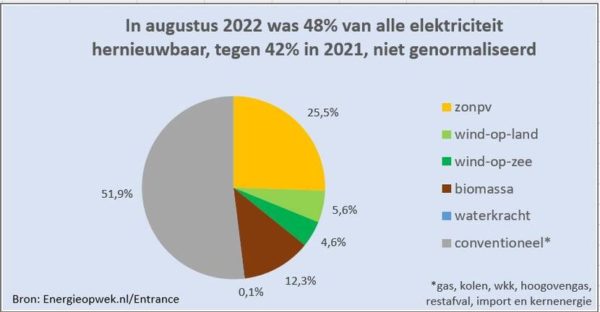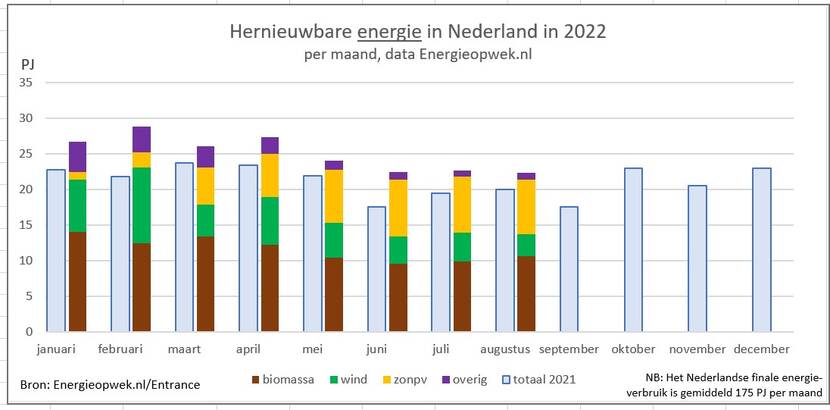Solar energy was able to cover around 25.5% of total electricity demand in the Netherlands in August, according to new figures released by Energieopwek.nl, which is controlled by a consortium formed by Hanze University Groningen, Tennet, Gasunie, and Netbeheer Nederland.
The increase in the share of solar was due to three factors: a higher number of PV installations that went online during the year, falling electricity demand, and an exceptional number of sunny hours. According to Energieopwek.nl, the Royal Netherlands Meteorological Institute (KNMI) registered 289 sunny hours in August, which compares to an average of 205. August was the second-sunniest month in recorded history.

Solar was the second-largest electricity source in August after the “conventional sources” category, which covered 51.9% of demand. The third-largest source was biomass with a 12.3% share, followed by onshore wind with 5.6%, and offshore wind with 4.5%. Hydropower had a minimal share of just 0.1%.
Lumped together, renewables achieved a share of 48%, which compares to 42% in August 2021. The country's Climate Agreement (Klimaatakkoord) aims for 70% by 2030.
The Netherlands reached a cumulative installed PV capacity of 14.3 GW at the end of 2021, according to the Dutch Central Agency for Statistics. A recent report from the Netherlands Organisation for Applied Scientific Research (TNO) stated that the country could reach up to 132 GW of PV by 2050.
This content is protected by copyright and may not be reused. If you want to cooperate with us and would like to reuse some of our content, please contact: editors@pv-magazine.com.




4 comments
By submitting this form you agree to pv magazine using your data for the purposes of publishing your comment.
Your personal data will only be disclosed or otherwise transmitted to third parties for the purposes of spam filtering or if this is necessary for technical maintenance of the website. Any other transfer to third parties will not take place unless this is justified on the basis of applicable data protection regulations or if pv magazine is legally obliged to do so.
You may revoke this consent at any time with effect for the future, in which case your personal data will be deleted immediately. Otherwise, your data will be deleted if pv magazine has processed your request or the purpose of data storage is fulfilled.
Further information on data privacy can be found in our Data Protection Policy.